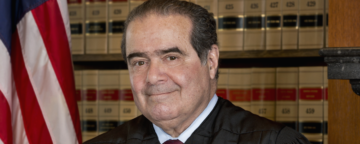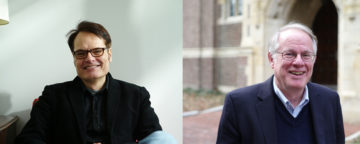A new report shows that many people who don't “believe” in evolution are still highly curious about science and engaged by a film about evolution, suggesting there is a “missing audience” for documentaries about science.


Michael Rozansky has worked as an editor, writer and reporter for 30 years. Before joining the Annenberg Public Policy Center as director of communications, he spent more than 20 years at the Philadelphia Inquirer, most recently supervising its arts and entertainment coverage. He has reported on the arts, media, business, politics, national and regulatory issues. Rozansky also developed and taught a class at Temple University on the history and practice of celebrity journalism. He received a bachelor’s degree in English and American literature from Brown University and a master’s degree in journalism from Columbia University’s Graduate School of Journalism.

A new report shows that many people who don't “believe” in evolution are still highly curious about science and engaged by a film about evolution, suggesting there is a “missing audience” for documentaries about science.

Supreme Court Justice Antonin Scalia was an originalist in his approach to the Constitution. In a 2008 video for Annenberg Classroom, he and Justice Stephen G. Breyer discussed theories of interpreting the Constitution.

In partnership with FactCheck.org and others, the Internet Archive has launched the Political TV Ad Archive to help journalists, researchers and the public understand the use of political ads in the 2016 elections.

Yale University law and psychology professor Dan Kahan, and the former top news executive at WHYY/NewsWorks, Chris Satullo, have joined the policy center for the spring semester.

The Annenberg Public Policy Center has been awarded a grant from the Robert Wood Johnson Foundation to identify a “Culture of Health” portrayed on popular TV shows. Studies will include Spanish-language shows.

Hundreds of fourth- and fifth-grade Philadelphia-area students showed off their impressive knowledge of the Fourth Amendment's prohibition on unreasonable search and seizure at the Rendell Center's Citizenship Challenge.

A study using a real-world approach to evaluate graphic warning labels on cigarette packs has found that the emotionally engaging images are more successful than simple text warnings at educating smokers about the risks of smoking.

Chris Satullo, the former vice president for news and civic dialogue at WHYY/NewsWorks, will join the Annenberg Public Policy Center as a professional in residence for the 2015-2016 spring semester.

Philadelphia students got the opportunity to talk with two mayoral candidates about how to improve the city in a forum sponsored by the Rendell Center for Civics and Civic Education and the Annenberg Public Policy Center.

At a time when the scientific consensus on critical issues such as vaccinations and climate change is being called into question, a comprehensive new handbook will examine the current state of the science of science communication.